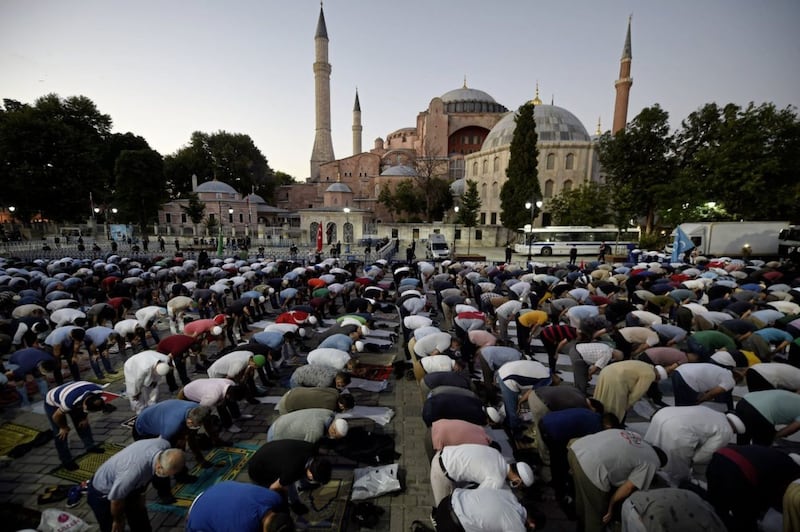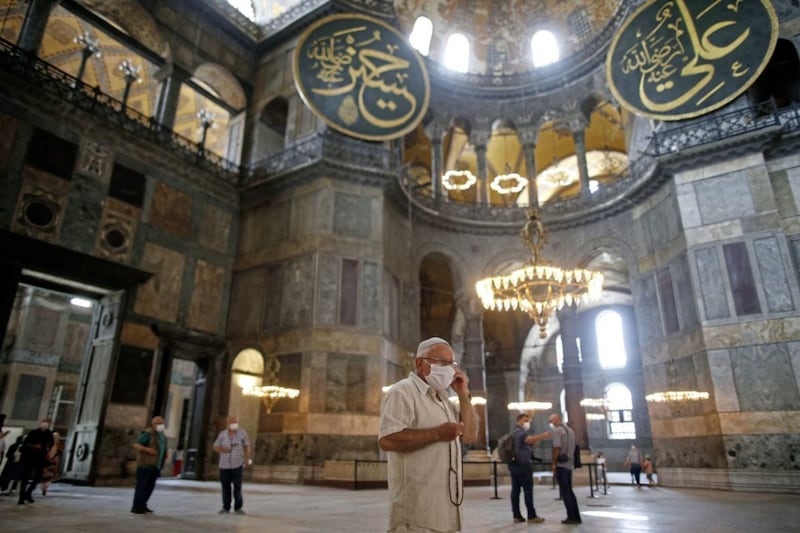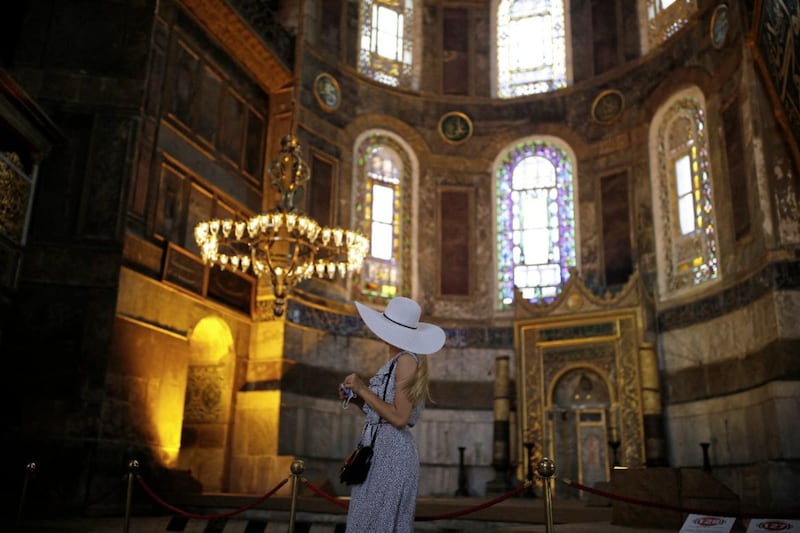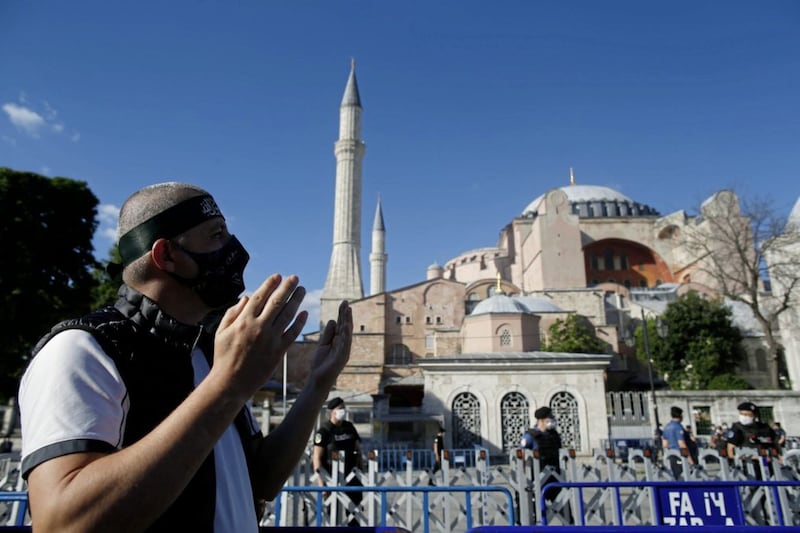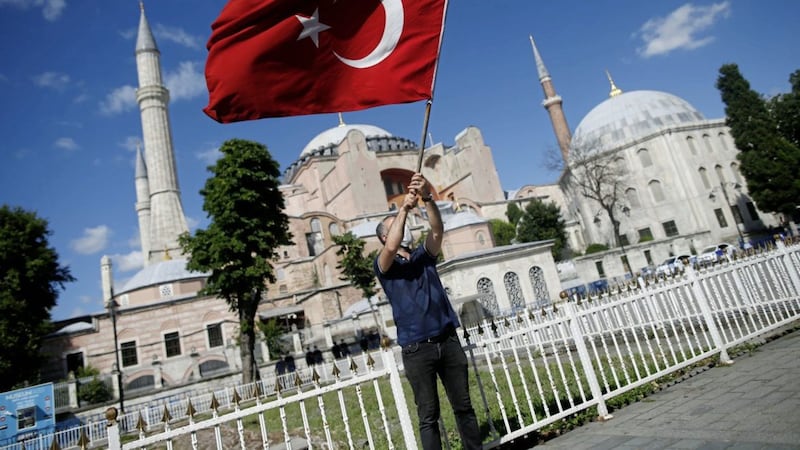POPE Francis has said he is "deeply pained" over the decision by Turkey to change the status of Hagia Sophia from a museum to a mosque.
The sixth century building in Istanbul was originally constructed as a Christian cathedral.
In a very brief, improvised remark, Francis, speaking last Sunday from his studio window overlooking St Peter's Square, noted that the Catholic Church was marking International Day of the Sea.
"And the sea carries me a little farther away in my thoughts: to Istanbul," he said.
"I think of Hagia Sophia, and I am deeply pained."
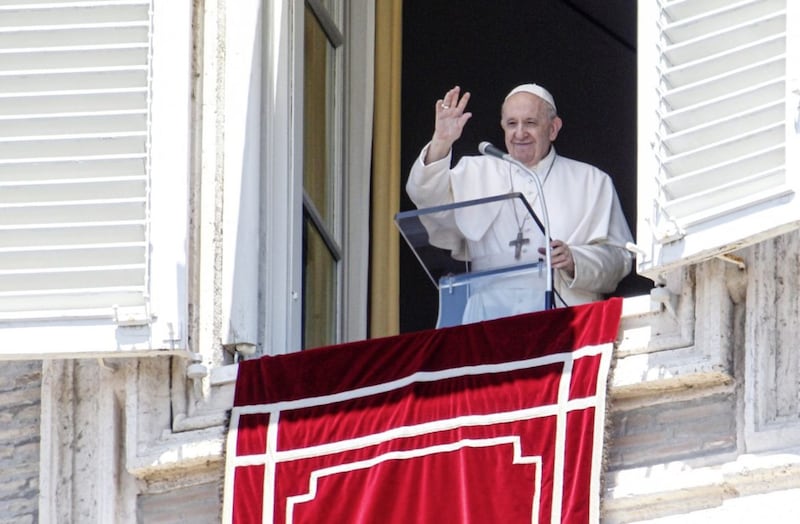
Francis said no more but was clearly referring to the move by Turkish President Recep Tayyip Erdogan to formally convert the colossal building back into a mosque.
The decision has provoked deep dismay among Orthodox Christians and the Geneva-based World Council of Churches, whose members include Protestant and Orthodox Churches, has spoken of its "grief and dismay".
Hagia Sophia - regarded as the most famous example of Byzantine architecture - was turned into a mosque after the Ottomans conquered the city in 1453.
Turkey's secular government made it a museum in 1934 and it later became a Unesco World Heritage site.
Nationalist and conservative groups have long been yearning to hold prayers at Hagia Sophia, which they regard as part of the Muslim Ottoman legacy.
Others believe the site should remain a museum as a symbol of Christian and Muslim solidarity.
Mr Erdogan has frequently used the debate over Hagia Sophia to encourage support for his Islamic-rooted party. In a major symbolic move in 2018, he recited the opening verse of the Quran in the museum.
Hours after a high court annulled the 1934 decision that turned Hagia Sophia into a museum, Mr Erdogan declared it open to Muslim worship last Friday, signing a decree which handed it over to Turkey's Religious Affairs Presidency.
Rev Prof Dr Ioan Sauca, interim WCC general secretary, noted that since 1934 "Hagia Sophia has been a place of openness, encounter and inspiration for people from all nations and religions".
It had also been a "powerful expression" of Turkey's "commitment to secularism and inclusion and of its desire to leave behind the conflicts of the past", said Dr Sauca in a letter to President Erdogan.
"By deciding to convert the Hagia Sophia back to a mosque you have reversed that positive sign of Turkey's openness and changed it to a sign of exclusion and division."
The Istanbul-based ecumenical patriarch Bartholomew I, considered the spiritual leader of the world's Orthodox Christians, warned last month that the building's conversion into a mosque "will turn millions of Christians across the world against Islam".
